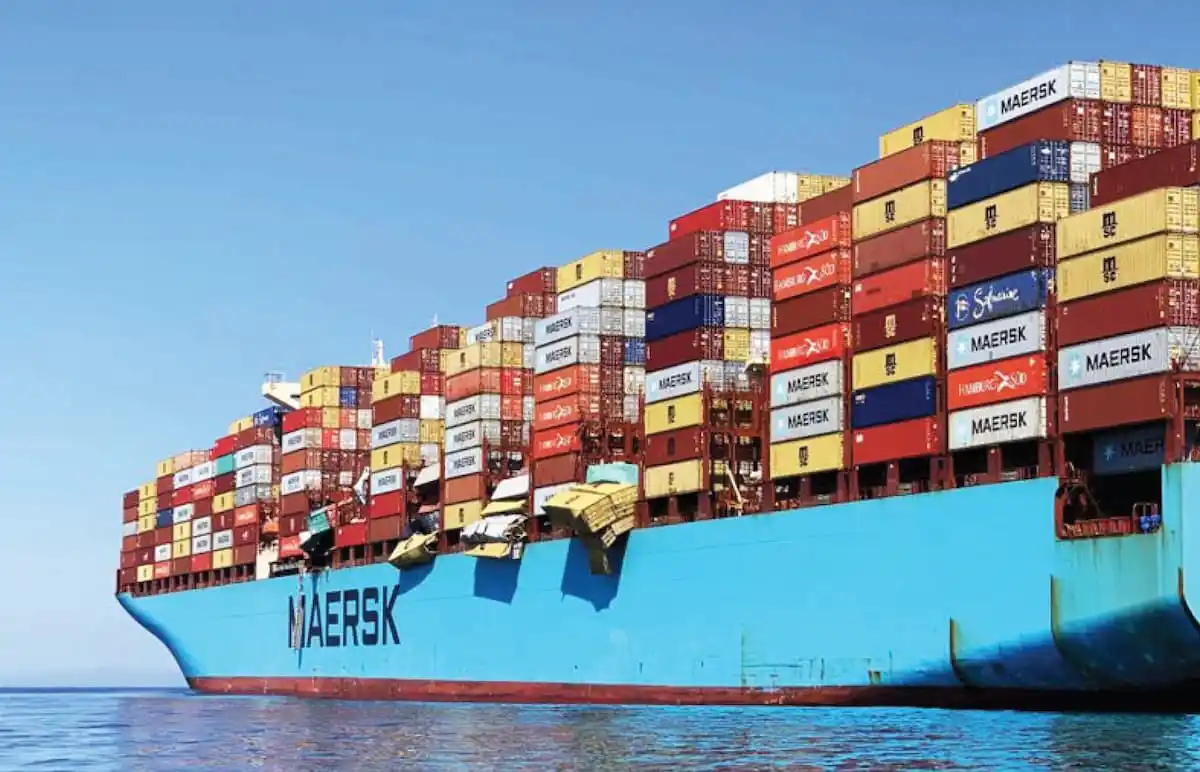
What does Maersk’s move to resume Red Sea transits say?
COPENHAGEN : The 24 December move by Danish container shipping giant Maersk Line Ltd to prepare for allowing its ships to resume transits through the Red Sea/Gulf of Aden that were paused earlier this month in the wake of attacks on commercial ships by Iran-backed Houthi militants, has caught industry experts by “surprise”, particularly when the drones and missile strikes shows no signs of a let up.
Maersk cited the deployment of the U.S.-led multi-national security initiative ‘Operation Prosperity Guardian’ to resume transit through the Red Sea, and once again return to using the Suez Canal as a gateway between Asia and Europe, both eastbound and westbound.
“We are currently working on plans for the first vessels to make the transit and for this to happen as soon as operationally possible,” Maersk said in a customer advisory on Sunday, without giving a timeline when this could happen.
“A bit of a surprise but the people at Maersk know shipping…professionals who wouldn’t take unnecessary risks. So, suppose it’s back to normal,” Nick Coverdale at Utanga Technologies, a Hong Kong-based software firm that builds supply chain transport management systems, said in a comment posted on LinkedIn.
A U.S-based shipping expert, though, was scathing in his opinion on Maersk’s return to the Red Sea.
“They don’t get to decide what happens next. The Houthis – and their sponsors – are the captains now,” he said in a comment posted on X (earlier known as Twitter) from his handle @ed_fin.
Copenhagen-based Vespucci Maritime’s Lars Jensen, a container shipping industry expert, wrote on LinkedIn it “could also be that they are using this to apply a bit of pressure on countries to add suitable forces to the navy taskforce, indicating the route can be re-opened but perhaps more hardware is needed”.
Hans-Henrik Nielsen, Global Development Director at UAE-based ship broker CargoGulf said in a LinkedIn post, “It’s not normal Maersk style to flip-flop so massively from Tuesday’s ‘we route everything via the Cape (of Good Hope) to Sunday’s ‘jolly good chaps back to normal’… In the meantime, war risk premiums are going up, that’s another cost to consider”.
Maersk, according to Per Starup Sennicksen at Denmark’s International Institute for Management Development, does not say “when” the operations are ready. “So, one or more merchant operators will evaluate the capabilities of the navies before proceeding – also with the commitment to pull out if the navies don’t perform”, he wrote on LinkedIn.
The Houthis have said that the naval patrolling in the Red Sea will not deter them from continuing the attacks which they said is a response to Israel’s war in Gaza.
“The attacks are not a safe thing for the crew and the vessels because the cost of a ship ranges from $100 million to over $200 million. The other problem is the millions of dollars’ worth of cargo on board the ships. So, nobody is going to take a chance,” a container shipping company executive said, backing the carrier’s move to divert the vessels away from the Red Sea in the wake of the attacks.
Meanwhile, another problem is brewing.
Brigadier General Mohammad Reza Naqdi of the Iranian Revolutionary Guards has warned that Israel and the West “shall soon await the closure of the Mediterranean Sea, (the strait of) Gibraltar and other waterways”, per media reports.
The threatened closure would be revenge against the U.S. and its allies for backing “crimes’ in the Gaza strip as part of Israel’s retaliatory war following the October terror attack by Hamas, media reports said, quoting Naqdi.
Maersk said in its advisory that “although security measures are in place to enable the transit of the Red Sea/Gulf of Aden for our vessels, the overall risk in the area is not eliminated at this stage”, adding that it “will not hesitate to re-evaluate the situation and once again initiate diversion plans if we deem it necessary for the safety of our seafarers”.
Maersk and other carriers had diverted ships away from the Red Sea following the Houthi attacks, opting instead to go via the Cape of Good Hope and announced surcharges to cover the extra costs associated with the longer transit times.
According to Vespucci Maritime’s Larsen, two Maersk ships that “were clearly enroute to go from Asia South around Africa but have now once more been redirected and are heading towards a Suez routing again”.
“Similarly, at least six of their vessels have made U-turns in the Mediterranean and are now once more headed towards Suez for the shorter routing to Asia,” he wrote on LinkedIn.
Larsen indicated that other carriers are also making U-turns to go via the Suez Canal.
“CMA CGM and Evergreen have successfully had two large vessels pass Bab el-Mandeb strait in the north bound direction. CMA CGM have two more vessels enroute from Asia towards Europe which are still far away from reaching Gulf of Aden but have clearly not deviated to go South around Africa. They have also had at least one vessel do a U-turn in the Mediterranean,” Larsen wrote.
“How this increased usage of the passage by some vessels will impact the carriers’ announced surcharges is not clear – the carriers have not posted any information pertaining to this aspect,” Larsen wrote on LinkedIn.
Maersk acknowledged that it was “still assessing the immediate effects of the resolution” and the “impact it will have in terms of diverted vessels, surcharges, booking acceptance and further contingency measures”.
Source : ET Infra
